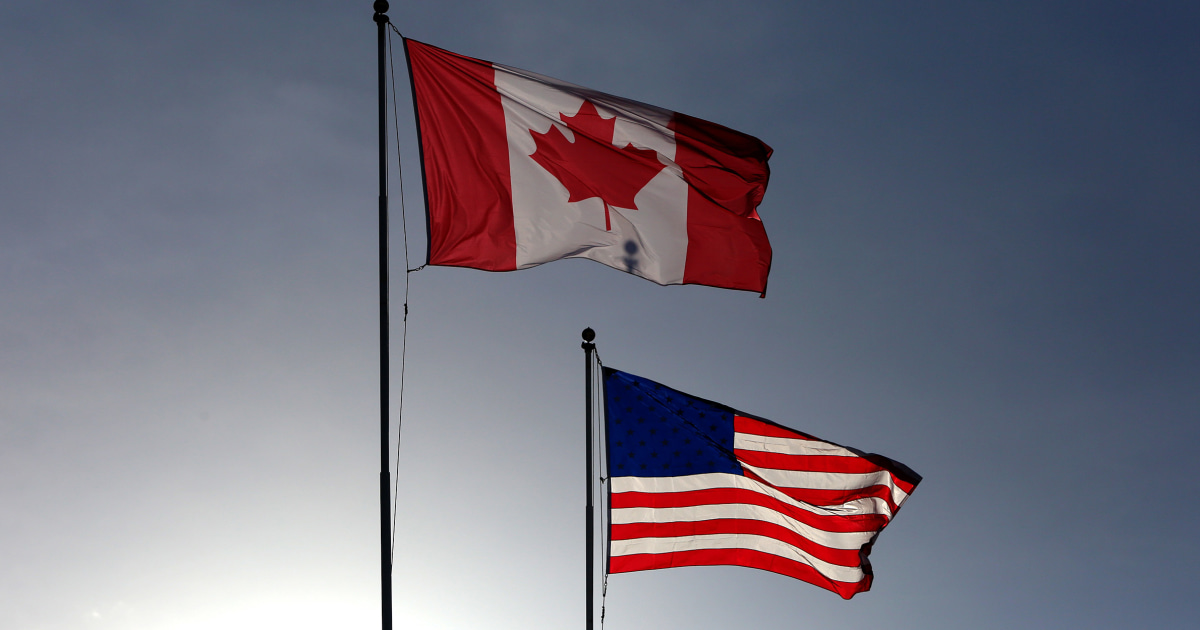Canadians Rethink U.S. Travel Plans Amid Political Tensions
Growing concerns over former President Donald Trump’s controversial policies and heightened border arrests have prompted many Canadians to reconsider visiting the United States. As political rhetoric intensifies ahead of the 2024 election, cross-border tourism faces a potential downturn, with economic implications for both nations. Experts warn the trend could strain long-standing travel habits and bilateral relations.
Declining Cross-Border Trips Reflect Rising Apprehensions
Recent data from Statistics Canada reveals a 12% drop in overnight trips to the U.S. in early 2024 compared to the same period last year. Meanwhile, a survey by the Angus Reid Institute found that 38% of Canadians feel less inclined to travel south due to political uncertainty, while 21% cite fears of unfair treatment at the border.
“The combination of aggressive immigration rhetoric and high-profile arrests has created a chilling effect,” explains Dr. Laura Simmons, a political scientist at the University of British Columbia. “Many Canadians—particularly those with dual citizenship or familial ties to Muslim-majority nations—are opting for domestic vacations or European alternatives.”
Key factors influencing travel decisions include:
- Increased scrutiny of travelers with Middle Eastern or African heritage
- Confusion over changing visa requirements
- Concerns about healthcare access amid abortion restrictions in some states
- Negative experiences shared on social media by recent travelers
Border Communities Feel the Economic Impact
Cities like Buffalo, Detroit, and Seattle—which traditionally rely on Canadian shoppers and weekend visitors—report declining revenues. The Buffalo Niagara Partnership estimates a $15 million monthly loss in retail and hospitality sectors since January.
“Canadian shoppers account for 30% of our weekend traffic,” says Marissa Chen, owner of a boutique mall near the Peace Bridge. “Since the election campaigns heated up, we’ve seen fewer Ontario license plates in our parking lots. When they do come, they spend less and leave sooner.”
However, not all Americans view the trend negatively. “Fewer cross-border trips mean shorter lines at our border crossings,” notes Homeland Security officer Mark Richardson. “But long-term, reduced tourism hurts local businesses that depend on predictable visitor flows.”
Political Rhetoric Fuels Travel Anxiety
Trump’s recent pledges to conduct “ideological screenings” for visitors and expand travel bans have particularly alarmed Canadian Muslims and activists. The National Council of Canadian Muslims reports a 200% increase in inquiries about U.S. travel advisories since March.
“I canceled my New York conference trip after hearing proposals to detain ‘radical leftists’ at borders,” shares Toronto-based journalist Elias Farah. “As someone who’s criticized Trump’s policies, I won’t risk becoming another headline.”
Conversely, some conservative Canadians welcome stricter policies. “If border security keeps dangerous people out, I’ll gladly answer a few extra questions,” argues Alberta resident Greg O’Neill, who frequently visits Montana. “Real travelers have nothing to hide.”
Alternative Destinations Gain Popularity
Travel agencies report surging interest in European and domestic packages. Air Canada has added 14 weekly flights to Lisbon and Barcelona for summer 2024, while Via Rail’s cross-country routes saw 18% higher bookings this spring.
“Canadians are redirecting their travel budgets,” observes travel analyst Sophie Tremblay. “Many prefer spending more on a trip to Italy than risking unpleasant encounters at U.S. customs—even if it means longer flights.”
Emerging trends include:
- 25% increase in bookings to Japan and South Korea
- Renewed popularity of Canadian Arctic cruises
- Growing “staycation” markets in Nova Scotia and British Columbia
What This Means for U.S.-Canada Relations
The tourism downturn coincides with strained trade negotiations and energy policy disputes. Some analysts warn that reduced people-to-people connections could further erode the bilateral relationship.
“Shared experiences—from shopping trips to family visits—have long cushioned political disagreements,” notes former diplomat Claire Fournier. “As these interactions decrease, we risk losing the social fabric that’s sustained North American cooperation for generations.”
Looking ahead, industry leaders urge both governments to clarify travel policies and reassure the public. “Uncertainty is tourism’s worst enemy,” says Tourism Industry Association CEO Bethany Aubert. “We need concrete measures to restore traveler confidence before the damage becomes irreversible.”
For Canadians reconsidering U.S. travel: Stay updated on border policies through official government websites, consider travel insurance with legal protection, and document all interactions with border officials. As political climates evolve, informed decisions remain your best safeguard.
See more BBC Travel World


